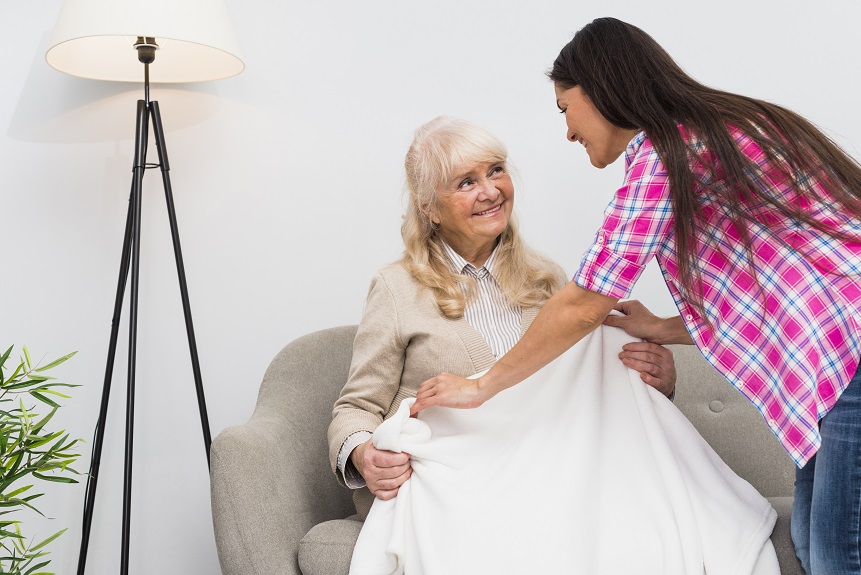for Expert Caregivers and Nursing Staff
Elder care, often referred to as senior care or geriatric care, has become an increasingly significant aspect of our society, especially with the rising aging population. As individuals grow older, their needs and requirements evolve, necessitating specialized care that caters to their unique circumstances. In this blog post, we will delve into the intricacies of elder care, exploring its importance in promoting the well-being and independence of senior citizens. Throughout the article, we will emphasize the focus keyword “elder care” to underscore its significance.

In an era characterized by busy lifestyles and changing family structures, elder care has emerged as a crucial component of ensuring the health and happiness of our aging population. As children move away for education or work and dual-income families become more common, the traditional concept of multi-generational households caring for their elderly members has transformed. Elder care has stepped in to bridge the gap, providing specialized services that meet the unique needs of seniors.
Elder care is not just about addressing physical needs; it encompasses a holistic approach to well-being. This includes not only maintaining physical health through medical interventions but also prioritizing emotional, mental, and social well-being. Seniors often face challenges such as loneliness, isolation, and declining cognitive abilities. Elder care professionals are trained to address these issues by providing companionship, engaging activities, and cognitive stimulation, promoting a fulfilling and enjoyable life for seniors.
One of the fundamental goals of elder care is to uphold and promote independence among senior citizens. Aging does not mean surrendering one’s autonomy; it merely signifies a change in requirements. Through personalized care plans, seniors can receive assistance in daily activities without compromising their dignity or control over their lives. This approach not only empowers seniors but also boosts their self-esteem, contributing to a more positive outlook on life.

As we age, health concerns become more prevalent. Elder care includes personalized health care that addresses specific medical needs. From managing chronic conditions to ensuring medications are taken correctly, health professionals in the elder care field provide targeted interventions. Moreover, regular health check-ups and screenings become more critical with age, enabling early detection and prevention of potential health issues.
One aspect that sets elder care apart is its focus on allowing seniors to age in the comfort of their own homes. The familiar environment of one’s home carries emotional significance and reduces the stress of adapting to new surroundings. By receiving care at home, seniors can remain connected to their cherished memories, possessions, and routines, contributing to their overall emotional well-being.

Loneliness and isolation are prevalent issues among the elderly population, leading to adverse effects on mental and emotional health. Elder care recognizes the importance of companionship and social interaction. Caregivers and professionals engage with seniors through meaningful conversations, activities, and outings, fostering a sense of belonging and reducing feelings of isolation.
Modern technology has found its way into the realm of elder care, enhancing the quality of services provided. Tele health services, for instance, allow seniors to consult medical professionals remotely, ensuring timely interventions without the need for in-person visits. Moreover, smart home solutions and wearable devices enable remote monitoring of vital signs, providing real-time data to caregivers and healthcare providers for proactive care.
Families play a vital role in the lives of senior citizens, but the responsibilities of caregiving can be overwhelming. Elder care offers respite care, allowing family caregivers to take breaks and recharge. This support not only benefits caregivers’ mental and physical health but also ensures that seniors receive consistent, high-quality care even when family members need a pause. When exploring elder care options, financial considerations come into play. Home health care is often more cost-effective than institutional care, as it eliminates the expenses associated with assisted living facilities or nursing homes. Families can also explore insurance coverage and government programs that provide financial support for elder care services.

Professional caregivers in the field of elder care are trained to provide a range of services. From assisting with activities of daily living, such as bathing and meal preparation, to offering emotional support and companionship, these caregivers ensure that seniors receive comprehensive care tailored to their needs. Every individual has a unique cultural background, and elder care recognizes the importance of honoring these differences. Cultural sensitivity is a cornerstone of effective care, ensuring that seniors’ traditions, values, and dietary preferences are respected and integrated into their care plans.
The landscape of elder care continues to evolve with advancements in medical technology and changing societal needs. Innovations such as robotics, wearable health devices, and artificial intelligence are reshaping how care is provided, making it more efficient and accessible. Integrated health approaches, where medical professionals, caregivers, and families collaborate, are becoming more prevalent, ensuring a holistic and well-rounded care experience for seniors.In conclusion, elder care holds immense significance in our modern society, addressing the unique needs of our aging population. By promoting well-being, preserving independence, and integrating technology, this specialized care ensures that seniors can lead fulfilling lives as they grow older. As the field of elder care continues to evolve and embrace innovative solutions, the future looks promising for enhancing the quality of life for our beloved senior citizens. Certainly, here’s the continuation of the article:
As the world around us changes, so too does the landscape of elder care. It’s essential to recognize that elder care is not just about addressing physical needs, but about empowering seniors to embrace life’s changes while maintaining their dignity and well-being. With a focus on personalized care, emotional support, and integrating technology, the future of elder care is brighter than ever. In addition to the immediate family, elder care also encompasses the broader community. Senior centers, support groups, and community programs play a vital role in ensuring that seniors remain socially engaged and connected. These platforms offer opportunities for seniors to interact, share experiences, and engage in meaningful activities, all of which contribute to their overall well-being.

Challenges will inevitably arise as our aging population continues to grow. However, the field of elder care is not one to shy away from challenges. Instead, it embraces them as opportunities for innovation. The integration of technology, such as virtual reality for cognitive therapy or AI-driven health monitoring, demonstrates the commitment of the elder care industry to overcome obstacles creatively and effectively. At the heart of elder care is the nurturing of dignity and autonomy. Aging does not diminish a person’s worth or their right to make decisions about their life. Elder care professionals recognize this fundamental principle and ensure that seniors are active participants in their care journey. By respecting their wishes, involving them in decision-making, and offering choices, caregivers uphold the dignity and autonomy of seniors.
While the importance of elder care is undeniable, awareness about its significance is still growing. Advocacy plays a vital role in promoting elder care as a priority in society. By advocating for policies that support seniors, raising awareness about the challenges they face, and highlighting success stories, we can collectively contribute to a more age-friendly and inclusive world.Elder care also offers a unique opportunity to bridge generational gaps. When families come together to care for their senior members, it strengthens bonds between different generations. Children and grandchildren learn valuable life lessons from the experiences and stories of their elders, creating a rich tapestry of shared memories and wisdom. In the end, elder care is not merely a service; it’s a philosophy that embraces a holistic approach to aging. It recognizes that senior citizens are not defined solely by their age but by the wealth of experiences, knowledge, and contributions they bring to our communities. As we provide care that encompasses physical, emotional, mental, and social well-being, we pave the way for seniors to age gracefully and purposefully. In summary, elder care is a multi-faceted concept that places seniors’ well-being and independence at its core. Through personalized care, emotional support, and technological innovation, this specialized field is transforming the lives of seniors around the world. As we continue to advocate for awareness, embrace change, and celebrate the dignity of our elders, we create a world where aging is not feared, but embraced as a natural and valuable part of life.
Elder care caters to a range of needs, both medical and non-medical. It encompasses physical, emotional, and social well-being, ensuring a holistic approach to care for seniors.
Families can promote dignity by involving seniors in decision-making, respecting their preferences, and providing choices. Open communication and active listening are key to upholding dignity.
You can advocate for elder care by raising awareness about the importance of senior well-being, supporting policies that benefit seniors, and sharing information about available resources.
To arrange a consultation with MT Patient Care Services, visit their website or contact their customer service representatives. They will guide you through the process and address any questions or concerns you may have.
Yes, MT Patient Care Services understands that each individual has unique care requirements. They offer customizable services to adapt to specific needs, ensuring that seniors receive the support they need.